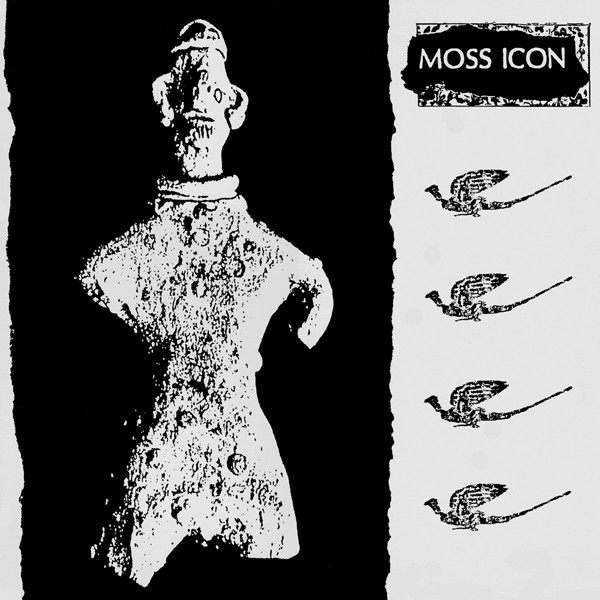
We could be from the same mother
You know maybe we are brothers
I don’t think that he said anything although it was obviously said
And strongly and wise
Moss Icon rule. Lyburnum Wits End Liberation Fly is a phenomenal record. It’s an intensely mysterious one too. Frontman Jonathan Vance can rage like hardcore DC’s finest, only when this guy spits fury, it’s deeply conflicted and emotionally perplexing. This isn’t your standard everyday sadness and depression over punk aesthetics. Moss Icon explode inside of a uniquely molded world they’ve created and it belongs to them alone. Lyburnum Wits End Liberation Fly is all emo acrobatics and lyrical mayhem. It’s fucking powerful in all the right abstract ways. Moss Icon sing about literally everything. They’re one of the genre’s undisputed best. Moss Icon as the quintessentially emotional postmodernists. These are songs that writhe, squirm, yelp, fume, and change people. Lyburnum Wits End Liberation Fly is cryptic poetics over emo soundscapes. It’s about being vexed by a puzzle eternal. In the world of Moss Icon, every single thing is both vexing and puzzling. Nothing makes sense and everything sucks.
This is an emo band that have been compelled by some unseen force to commit fits of confused anger in sonic perpetuity. Vance is screaming out for a purpose, he sounds equal parts vulnerable and dangerous. He demonstrates a secretive depression through exclusively arcane projections. This band sounds like they’re afraid. This band sounds like they’re very pissed off. They are intensely authentic on both fronts. On Lyburnum Wits End Liberation Fly, Moss Icon sound flummoxed and they sound like a band desperately trying to escape from everything and everyone. Moss Icon lash out in all directions. No philosophy, psychology, figure or ideal is safe from their hyper-emotional wrath. Lyburnum Wits End Liberation Fly is about letting phantom punches fly.
Annapolis, Maryland might not seem that far from DC to most of us but sometimes it’s the smallest distances that provide the most crucial distinctions. Rather than simply singing like a Rites of Spring rip-off group, Moss Icon propel the kind of woofs and shouts that would make Guy Picciotto run for safety. The songs often fall apart in caustic fits only to reshape themselves into deeply meditative and emotional ruminations. The guitar work is on-fucking-point, perhaps the most inspiring facet of the record is the musicianship. It’s an approachable emo album that makes you want to go out and either see a show or put one on. Sure, it is one of the more lyrically challenging emo LPs out there, but for me anyway, it’s a musical inspiration. I wish all records sounded like this, treading that gorgeous line between lo-fi crunch and high wire dynamics. Lyburnum Wits End Liberation Fly is an album that I can listen to anywhere and at anytime. If Jonathan Vance’s lyrics get too overwhelming, if my mental state is not fully available to ingest his decidedly intense flavor of emo wordsmanship, I can lock directly into the music and be equally captured by the emo acrobatics Moss Icon were so fucking good at. Lyburnum Wits End Liberation Fly is a dazzling masterwork. It’s a magnum opus of ferocity and sensitivity. It’s a deeply affecting LP. It moves me, impacts me, and thrills me. It absolutely devours me.
Fuck yes.
Mirror is a flawless opener. I mean, wow, every track is flawless in their own way. I’m Back Sleeping or Fucking or Something is a ricochet emo banger with an emphasis on guitar and bass crunch. The slow burn of the eleven minute long, emotionally epic title track broods with problematic iconography, spiritual misgivings, and existential dilemmas. Happy (Unbounded Glory) is Moss Icon unrestrained in sonic emo oblivion with beautifully composed guitar arrangements heightening the abstract impact of Vance’s vocals. Kick The Can is probably the crown jewel of postmodern punk music. It’s a goldmine of emo guitar and bass perfection—a musically captivating track for Vance to perform a wonderfully defeating panic attack on.
Why is emo music like this so powerful to me? Why are albums like Lyburnum Wits End Liberation Fly or Rites Of Spring so goddamned tragically divine and spiritually essential to people like me? Albums like Lyburnum Wits End Liberation Fly sound uncannily as if they were mined from the more upsetting parts of my own body. Bands like Moss Icon feel like I was actually in them. As if I were some sort of unofficial invisible member. Bands like Moss Icon operate as the triumphant mascots of my near-constant depression. Emo music means so much to people like me because it’s OURS. There’s an unspoken and affectionate ownership here. The devotees of the emo/hardcore genre are both fiercely loyal and incredibly defensive. I’ll fight for Moss Icon as if they were my own brothers. I’ll fight to the death for Lyburnum Wits End Liberation Fly.
Neither the band Moss Icon or the album Lyburnum Wits End Liberation Fly ever really got the recognition they truly deserved. Only recently has the album been lauded in the same breath as its classic contemporaries like Rites Of Spring, In On The Kill Taker, Diary, Do You Know Who You Are?, and 24 Hour Revenge Therapy. This is not a sleight against any of those albums, they’re a handful of my favorites (and I’m sure you’ll see most of them as the subjects of future Goo Is You Essentials). My point is that while albums like Sunny Day Real Estate’s Diary and Jawbreaker’s 24 Hour Revenge Therapy have always been acknowledged as monuments of the emo genre, Moss Icon’s Lyburnum Wits End Liberation Fly has never experienced that kind of universal esteem. It’s almost fixed in place as an insider-classic. This is partly invigorating and party tragic. It’s invigorating to have an underappreciated album be this great in order to soothe the kind of subtle elitism all die hard music lovers find stimulating (even if we hate to admit that) but it’s mostly tragic because of the magnitude of people who haven’t heard it as a result of it being talked about so little. There are hordes of folks who’ve never been exposed to Moss Icon and I fucking hate that!!! I think of how much this band has affected me and made me appreciate and think about so many things through the sonic language of emo music. It’s kind of depressing to think about all the people who don’t even know how much they NEED Lyburnum Wits End Liberation Fly without realizing it. They’re starving for something specific, tender, and authentic. A lot of people are pretty sick with grief. Moss Icon are the white-hot cure.
Within the first fifteen seconds of Mirror you know you’re listening to a classic record. A track to get you plucking an imaginary bass as you run around your living room like an overemotional clown. When Vance’s passionate shouts cut in after his nervous mumbling and anxious vocal delivery, you’re fucking raging up a storm.
Locket belongs in a half-pipe. It belongs to the doped-up and idealistic youth. It belongs to the chosen ones. It belongs to the survivors. It belongs to pissed off Proust readers. It belongs to me.
As Afterwards The Words Still Ring switches back and forth between anxious emo aesthetics and proto folk-punk anthemics. It’s all ugly beauty and beautiful ugliness. Cricketty Rise (Haverton Roads Browns And Greens) pairs nicely with a skateboard and an empty moonlit street. It’s a deeply contemplative rush of pure emo. It’s a track that’s perfectly at home in the earbuds of some fatalistic young skater while he half-ruminates, half-daydreams. It’s all vertical motion though. Like Locket, Cricketty Rise is a song for punk rock romantics and idealistically beautiful cynics. Locket and Cricketty Rise is pure emo sonic poetry. It’s emo you can skate to, dance to, and lose yourself in. If you want.
Far from a biblical golden calf or other untrue idols, Moss Icon are authentics.
They’re legends. Recognized or not.
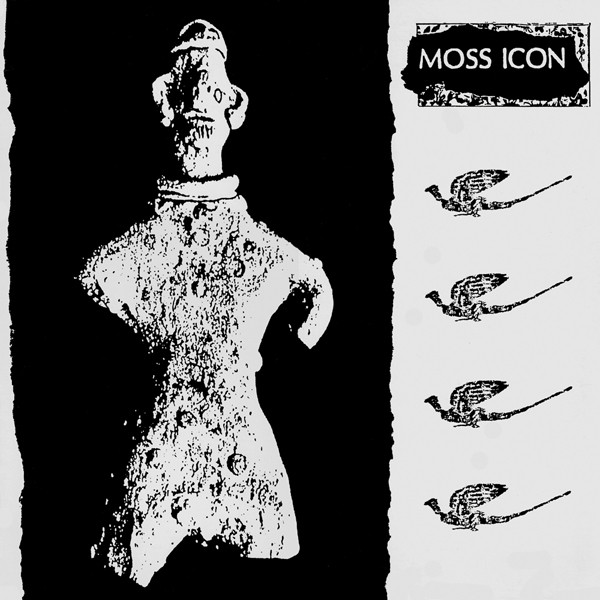


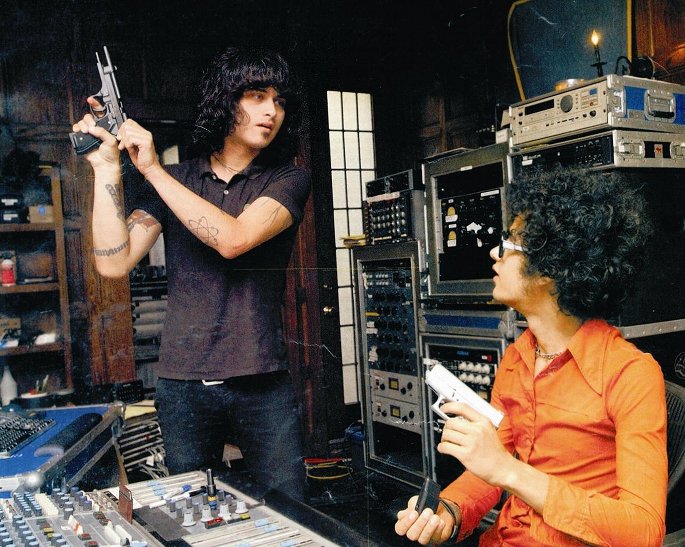
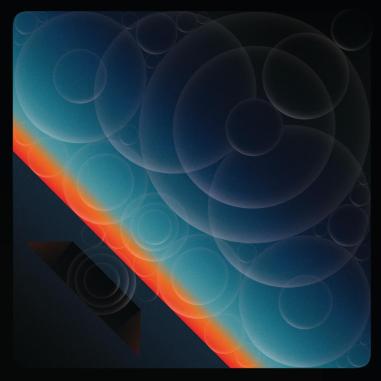 It’s that first track though. That’s the one that completely captures me. It’s called The Whip Hand and it’s basically, like, my raison d’être (the hyperbole’s not gonna stop anytime soon, folks!). It might sound like an embellishment of sorts but The Whip Hand speaks to me in the most perfectly furious sonic language I have ever heard. It’s as if I was made for this very specific and demanding musical vocabulary. It communicates to me directly without any sort of interference or latency because this song and I are on the same sonic wavelength. The Whip Hand sounds as if it was born inside of my guts. It’s how I wish all music was. It’s like The Mars Volta ripped the crunching synths straight from my spine. Good glorious God, I fucking LOVE the way those chomping, CRUNCHING, hungry synthesizers sound. If those things were the last I ever heard, I might not even be that upset with deafness. Noctourniquet opens with one of the most surreally perfect songs I have ever heard. I am completely obsessed with The Whip Hand. Consider me captured by it.
It’s that first track though. That’s the one that completely captures me. It’s called The Whip Hand and it’s basically, like, my raison d’être (the hyperbole’s not gonna stop anytime soon, folks!). It might sound like an embellishment of sorts but The Whip Hand speaks to me in the most perfectly furious sonic language I have ever heard. It’s as if I was made for this very specific and demanding musical vocabulary. It communicates to me directly without any sort of interference or latency because this song and I are on the same sonic wavelength. The Whip Hand sounds as if it was born inside of my guts. It’s how I wish all music was. It’s like The Mars Volta ripped the crunching synths straight from my spine. Good glorious God, I fucking LOVE the way those chomping, CRUNCHING, hungry synthesizers sound. If those things were the last I ever heard, I might not even be that upset with deafness. Noctourniquet opens with one of the most surreally perfect songs I have ever heard. I am completely obsessed with The Whip Hand. Consider me captured by it.
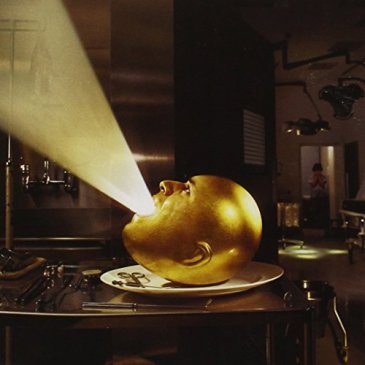
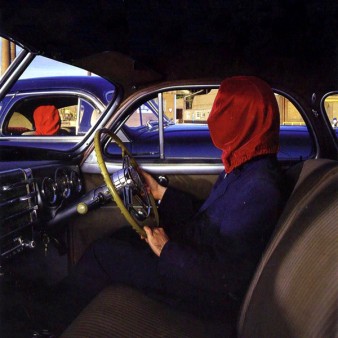 That goddamn song, man, is so unbelievable I never tire of it. It’s incredible and perfect and ohmygosh–this song rules. The freaking video was even rotated kindly on MTV during the channel’s final days of relevance. I remember actually seeing it on television multiple times and just being awestruck by the complete fucking majesty of the song. The crown jewel of the LP though is L’Via L’Viaquez, a track that fully captures everything I love about experimental noisy rock music. It’s a track that brings together everything about The Mars Volta that made them great and different–it’s a mushroom cloud of indescribably designed sounds. L’Via L’Viaquez is a cross-cultural free-form pop-crunch symphony of surrealist color. L’Via L’Viaquez is good. L’Via L’Viaquez is life. Viva L’Via L’Viaquez!
That goddamn song, man, is so unbelievable I never tire of it. It’s incredible and perfect and ohmygosh–this song rules. The freaking video was even rotated kindly on MTV during the channel’s final days of relevance. I remember actually seeing it on television multiple times and just being awestruck by the complete fucking majesty of the song. The crown jewel of the LP though is L’Via L’Viaquez, a track that fully captures everything I love about experimental noisy rock music. It’s a track that brings together everything about The Mars Volta that made them great and different–it’s a mushroom cloud of indescribably designed sounds. L’Via L’Viaquez is a cross-cultural free-form pop-crunch symphony of surrealist color. L’Via L’Viaquez is good. L’Via L’Viaquez is life. Viva L’Via L’Viaquez!
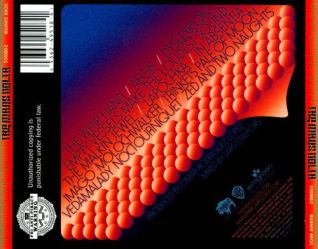


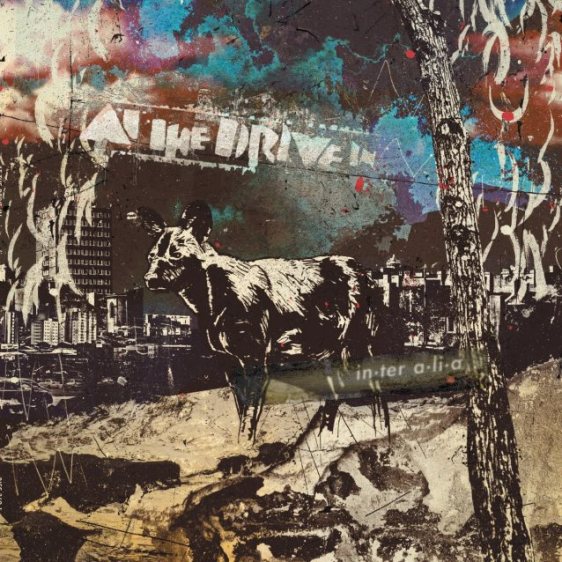



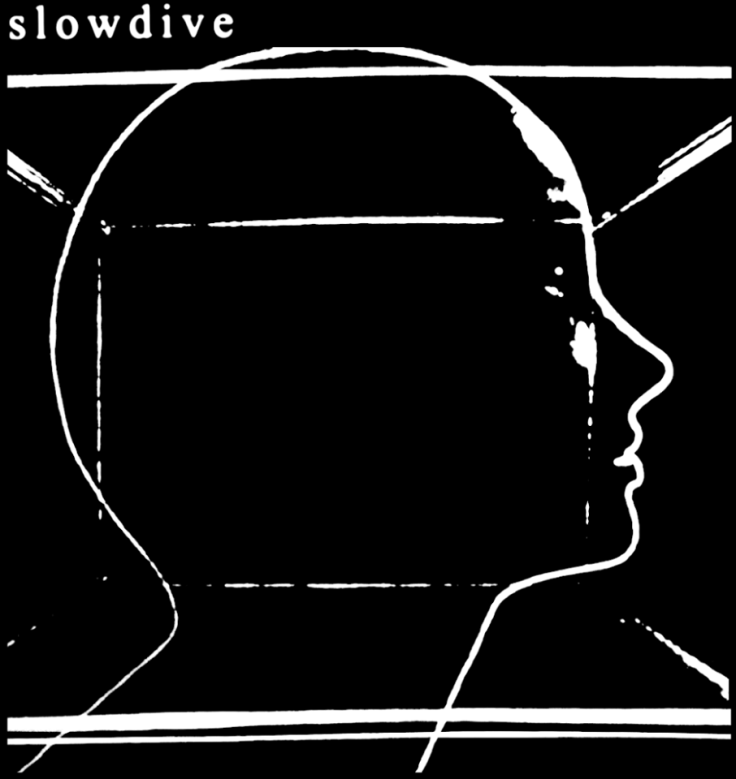





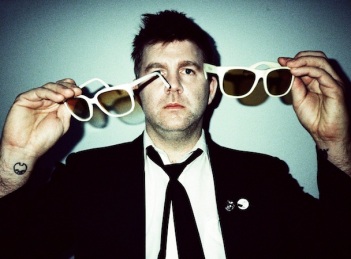 LCD Soundsystem is about anti-hits and non-commentary. When you think a profound point is being made, the joke’s on you, and when you find yourself giggling at Murphy’s self-deprecation, he turns the lyrical blade on his listener. When you think you’re listening to a radio hit, six minutes pass by and you’ve already become a new human being thanks to the power of pop music. That genre that’s supposed to only provide you with feels and vibes, possibly even an ignorable atmosphere, just fucked up your philosophy. Even songs like Drunk Girls are written so cynically that you can’t help but feel that it’s a self-hating hit. LCD Soundsystem make contemporary pop music that is truly of the here and now while sending up the past. It’s the sonic equivalent of the best absurdist plays. Losing My Edge as Endgame. You Wanted A Hit as Waiting For Godot. James Murphy as a dance-crazed Samuel Beckett.
LCD Soundsystem is about anti-hits and non-commentary. When you think a profound point is being made, the joke’s on you, and when you find yourself giggling at Murphy’s self-deprecation, he turns the lyrical blade on his listener. When you think you’re listening to a radio hit, six minutes pass by and you’ve already become a new human being thanks to the power of pop music. That genre that’s supposed to only provide you with feels and vibes, possibly even an ignorable atmosphere, just fucked up your philosophy. Even songs like Drunk Girls are written so cynically that you can’t help but feel that it’s a self-hating hit. LCD Soundsystem make contemporary pop music that is truly of the here and now while sending up the past. It’s the sonic equivalent of the best absurdist plays. Losing My Edge as Endgame. You Wanted A Hit as Waiting For Godot. James Murphy as a dance-crazed Samuel Beckett.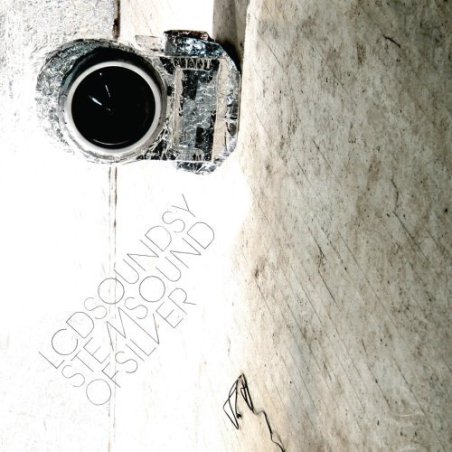



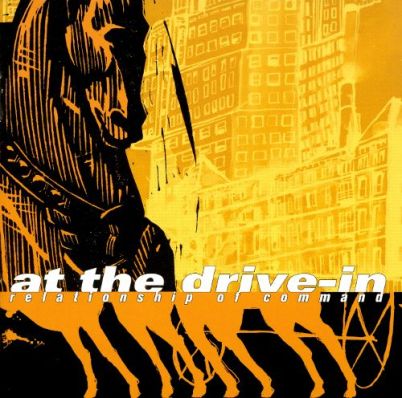

 Relationship of Command is the most perfect rock record of the early aughts. Its eternal characteristic is elemental. It is a fiery LP. It scorches, blazes, and burns. It sears. Relationship of Command is philosophically fatalistic. It is a record that steams with postmodern rage. Post-hardcore, by definition, is a deconstructionist style that takes the core concepts of emotional hardcore music and punk rock, then reshapes and realigns them into fiercely modern and strikingly powerful themes. Post prefixed music populates after-the-fact genres and movements in art. This is music for those who missed out. This is what happens when the party’s over. Post-hardcore music is also aggressively ever-happening. It is, for all intents and purposes, postmodern punk rock. Pioneered by groups like Nation of Ulysses, Fugazi and Rites of Spring, and later perfected by others like Refused and At The Drive-In, post-hardcore is immediate no matter how old the record is and how late you’re listening to it by comparison. Records like Relationship of Command, The Shape of Punk to Come and Steady Diet of Nothing have the postmodern benefit of being ageless and adaptive. These are LPs that change according to circumstance.
Relationship of Command is the most perfect rock record of the early aughts. Its eternal characteristic is elemental. It is a fiery LP. It scorches, blazes, and burns. It sears. Relationship of Command is philosophically fatalistic. It is a record that steams with postmodern rage. Post-hardcore, by definition, is a deconstructionist style that takes the core concepts of emotional hardcore music and punk rock, then reshapes and realigns them into fiercely modern and strikingly powerful themes. Post prefixed music populates after-the-fact genres and movements in art. This is music for those who missed out. This is what happens when the party’s over. Post-hardcore music is also aggressively ever-happening. It is, for all intents and purposes, postmodern punk rock. Pioneered by groups like Nation of Ulysses, Fugazi and Rites of Spring, and later perfected by others like Refused and At The Drive-In, post-hardcore is immediate no matter how old the record is and how late you’re listening to it by comparison. Records like Relationship of Command, The Shape of Punk to Come and Steady Diet of Nothing have the postmodern benefit of being ageless and adaptive. These are LPs that change according to circumstance.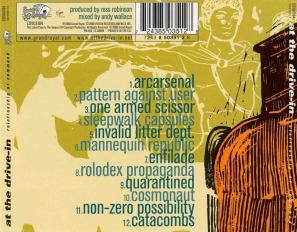
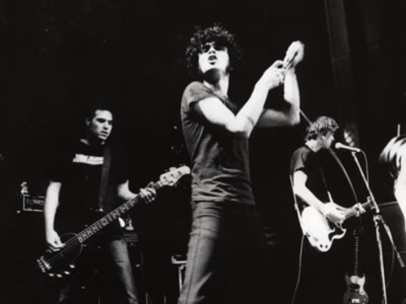
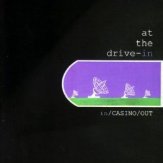 Even when you give something like Acrobatic Tenement a spin, you are immediately transported to a very unique world. In/Casino/Out is a masterpiece unto itself and might even deserve its own think-piece. In/Casino/Out is truly a phenomenal record, captured in live sessions which add to the overall sense of anxiety and restless energy, the one unifying element found in every At The Drive-In release. Songs like Alpha Centauri can revitalize your life. Others like Napoleon Solo can stop you dead in your tracks. Shorter releases like Vaya provide quick fixes and bridges to future soundscapes. Their catalog is an odyssey of sonic grammar, culminating in Relationship of Command. Only time will tell where in•ter a•li•a will stand, but I have high hopes for the record’s endurance and appeal.
Even when you give something like Acrobatic Tenement a spin, you are immediately transported to a very unique world. In/Casino/Out is a masterpiece unto itself and might even deserve its own think-piece. In/Casino/Out is truly a phenomenal record, captured in live sessions which add to the overall sense of anxiety and restless energy, the one unifying element found in every At The Drive-In release. Songs like Alpha Centauri can revitalize your life. Others like Napoleon Solo can stop you dead in your tracks. Shorter releases like Vaya provide quick fixes and bridges to future soundscapes. Their catalog is an odyssey of sonic grammar, culminating in Relationship of Command. Only time will tell where in•ter a•li•a will stand, but I have high hopes for the record’s endurance and appeal.